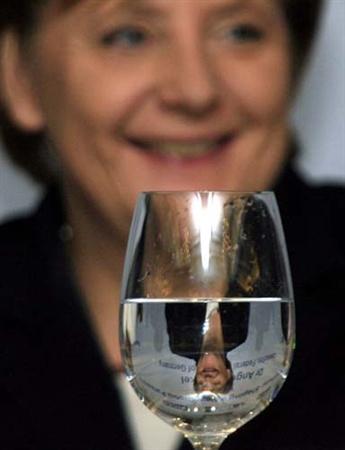
David Casa’s favourite journalist at the Guardian describes Angela Merkel as “Non-ideological, centrist, eschewing confrontation” and “non-partisan” to boot. Ian Traynor’s analysis on Merkel’s electoral victory last night (Merkel persuades Germans she is people’s chancellor, but result leaves her vulnerable) concludes that the second weakest result for the CDU menas that Angela Merkel is now exposed to possible backstabbing from within her own party.
Have we not seen that happen elsewhere before? The watered-down, appease-everybody politics of the noughties risk giving us a plethora of weak and unstable options. Seen in this light, Obama’s trail-blazing campaign in the US might only just have stuck out because the man tried hard to give a sense of purpose – as politicians of the past always strove to do – to his politics, beyond the marketed words of appeasement.
Merkel the non-ideological, non-partisan might be good news at the moment of the pronouncement of the electoral result (as in She Won) but in the long term, the vagaries of non-commital policies and hazy uncertainty will far outweight the “let’s get into the driving seat at the cost of our spines” non-ideology.
Or is the non-ideology an ideology in itself? Is this the result of the distancing from a tainted political class? Have the politicians misunderstood the needs of their times? Having been told to mend their ways and improve the lot of society they have decided to blend into anonymity and non-ideological blandness. The result? We do not elect leaders but followers. We do not elect ideas but parrots.
Will our (Maltese) political class pick up on this anomaly? Or will the menu from GonziPN to Muscat’s ill-conceived reforms (leading in the same Merkel/murky direction) give us more of the same?
